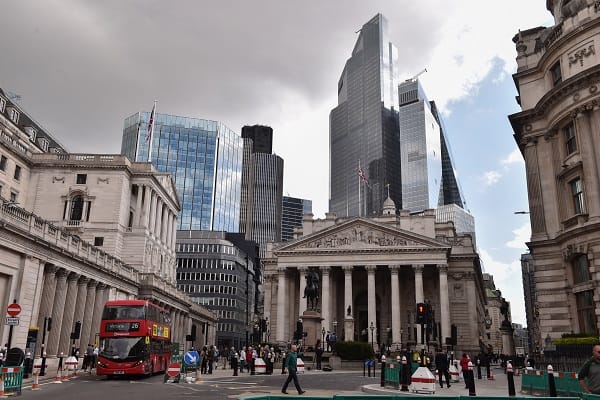The UK economy hit a significant milestone on Wednesday: inflation has finally fallen to the Bank of England’s (BoE) target of 2% as of May, according to the Office for National Statistics (ONS).
This move comes just ahead of the elections in July (although it must be stressed that the government does not control inflation, despite it being trumpeted by Prime Minister Rishi Sunak) and has caught the attention of investors, both domestic and international.
With the headline reading dropping from 2.3% in April to the anticipated 2%, and sterling showing a slight rise to $1.2721, the economic landscape is shifting positively. This development carries substantial implications for investment portfolios, presenting both opportunities and risks.
With inflation at the BoE’s target, investor confidence is likely to strengthen, making equities an attractive option.
Blue-chip stocks, particularly those in consumer goods and retail sectors, stand to benefit as stable inflation boosts consumer purchasing power. Companies like Unilever and Tesco are likely to see increased sales, translating to better earnings and higher stock prices.
The financial sector, including banks and insurance companies, also appears promising.
Stable inflation means predictable interest rate policies from the BoE, which can enhance the profitability of financial institutions.
Barclays and Lloyds Banking Group, for instance, could experience an uptick in lending activity and investment services as business and consumer confidence grow.
The tech sector, already a powerhouse in the UK economy, remains a solid choice. With inflation under control, tech companies can anticipate more stable operating costs and may see sustained investment and expansion opportunities.
Bonds, particularly government bonds, become more attractive with stable inflation. The predictable returns of gilts offer a safe haven for risk-averse investors. Corporate bonds from highly rated companies also become a viable option, promising steady yields without the threat of eroding purchasing power due to inflation.
Despite the more positive domestic outlook, global economic uncertainties remain a risk.
Trade tensions, geopolitical conflicts, and economic slowdowns in major economies like the US or China can affect the UK market. Diversification remains key to mitigating these risks.
Services inflation, at 5.7% in May, continues to be a concern. While the overall inflation rate is stable, the high services inflation reflects underlying price pressures within the economy. Investors should monitor this closely as it could impact sectors dependent on domestic services.
Core inflation, excluding volatile items like energy and food, dipped to 3.5% from 3.9% in April. This is a positive sign, but the relatively high level indicates that underlying price pressures persist. Investors need to stay vigilant and consider inflation-protected securities as part of their strategy.
The slight rise in sterling to $1.2721 following the inflation announcement indicates a renewed confidence in the UK economy.
For currency investors, this stability presents a bullish outlook for the pound. As inflation aligns with the BoE’s target, the central bank is less likely to implement drastic monetary policy changes, creating a more stable currency environment.
This stability can attract foreign investment, further strengthening the pound. Investors can capitalize on this by considering forex investments in GBP pairs, particularly against weaker currencies.
Additionally, businesses with significant import costs can benefit from a stronger pound, reducing their expenses and potentially boosting their profitability.
However, it’s important to monitor global economic factors that could influence the pound, such as international trade dynamics. Diversifying currency holdings to include other stable economies will also hedge against unforeseen volatility in the forex markets.
In short, a new era in terms of UK inflation, might require a rethink of portfolio allocations to mitigate risks and seize new opportunities.

